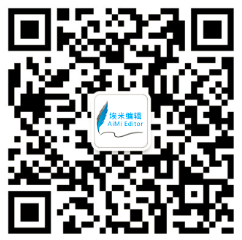以下内容首发于微信公众号:【埃米编辑SCI论文润色】。关注微信公众号,写作投稿更容易~如有论文润色需求,可以联系我们哦~
一篇优秀的SCI论文,语法正确、结构清晰是最基本的,真正决定其成败的,往往在于那些易被忽视的细节。在日常交流或非学术性写作中,某些词汇或短语的使用或许无伤大雅,但作为科学性与严谨性并重的论文,需避免使用非正式、过于简化、模糊、夸张或主观的表达。当然,在直接引用访谈对象原话时,这类表述虽可接受,但在你的论证中,需确保论文的严肃性。
因此,今天我们来说说哪些词是论文写作的禁忌词!别让你的论文“死”在了第一步!
1 不正式的表达
学术论文写作通常比其他文体更为正式。因此,非正式表达的词语或短语应避免出现在论文中。对于论文来说,以下单词和短语被认为不正式,但换掉或去掉这些单词和短语,句子一样能够出现在论文中。
1) a bit
改前:The interviews were a bit difficult to schedule.
改后:The interviews were (difficult/somewhat difficult) to schedule.
2) A lot of
改前:A lot of studies
改后:(Many/several/a great number of/eight) studies
3) Kind of, sort of
改前:The findings were kind of significant
改后:The findings were (somewhat significant/significant to some degree)
4) Isn't, can't, doesn't, would've (or any other contraction)
改前:The sample isn't ……
改后:The sample is not ......
5) You, your
改前:You can clearly see the results.
改后:One can clearly see the results.
改后:The results can clearly be seen.
2 句首词的不恰当使用
有些词语在某些语境中是没有问题的,但用在句首就显得太不正式或者有语法问题了。可以用适当的过渡词替换它们,或者干脆直接将它们删除。
1) Plus
改前:Plus, the participants were in agreement on the third question.
改后:(Moreover/Furthermore/What is more), the participants were in agreement on the third question.
2) So
改前:So, it can be concluded that the model needs further refinement.
改后:Therefore, it can be concluded that the model needs further refinement.
3) And
改前:And the participants were all over the age of 30.
改后:The participants were all over the age of 30.
4) Besides
改前:Besides, we asked all the participants to sign an agreement.
改后:Additionally, we asked all the participants to sign an agreement.
3 含义表达过于含糊
使用含糊不清的词语会使文章不够精确,可能会让人产生不同的理解,从而导致审稿人对你的研究产生误解,或给出负面意见。因此,在论文写作中应尽量使用能够表达具体意思的词语。
1) Stuff
改前:People are concerned about their stuff.
改后:People are concerned about their (belongings/possessions/personal effects).
2) Thing
改前:The report presents many things.
改后:The report presents many (details/findings/recommendations).
3) A while
改前:This topic has interested researchers for a while.
改后:This topic has interested researchers for more than 30 years.
4 表述过于夸张
学术论文的写作讲究真实且质朴,一些频率副词,如always和never等,以及加强语气的副词,如really。往往表述过于夸张,可以尽量少用或不用。
1) Always, never
改前:Researchers always argue that.
改后:Researchers (frequently/commonly/ typically) argue that.
2) Perfect
改前:The perfect solution to the problem.
改后:(An ideal solution/one of the best solutions) to the problem.
3) Really, so, super
改前:This theory is really important.
改后:This theory is (important/critical/crucial).
5 偏向主观的陈述
论文写作需要陈述客观事实,而非个人的主观臆断。因此,论文写作的过程中,遣词造句就要避免暴露过于主观的词语和短语。例如,如果你说某件事情显然会发生,这实际上是在表明你认为这件事的发生是显而易见的,而不是在陈述事实。
1) Beautiful, ugly, wonderful, horrible, great, boring
改前:A review of the literature yielded many great articles.
改后:A review of the literature yielded many relevant articles.
2) Obviously, naturally, of course
改前:The results obviously indicate.
改后:The results clearly indicate.
学术论文的写作主打一个客观严谨,任何词语的选择都不能远离这一中心思想。因此,有些词语是要特别注意使用情景的。
你有没有因为一个单词就被审稿人提出语言问题或者批评过呢?关于论文写作中的禁忌词,你认为还有其他的吗?
扫描下方二维码,关注【埃米编辑SCI论文润色】微信公众号,获取更多SCI论文写作资料,回复“礼包”,免费领取100+写作投稿资料包和投稿问题30问。

参考资料:
[1] https://www.scribbr.com/academic-writing/taboo-words/
[2] https://www.antioch.edu/wp-content/uploads/2018/06/Academic-Tone-for-Formal-Writing.pdf
[3] https://libguides.usc.edu/writingguide/appendices